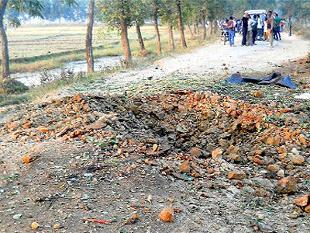New Delhi, Jul 18: With 34,884 people testing positive for coronavirus in the last 24 hours, India's Covid-19 caseload surged to 10,38,716 while 6,53,750 patients have recovered from the disease so far, according to data by the Union Health Ministry.
The death toll due to Covid-19 rose to 26,273 with 671 fatalities reported in a day, the data updated at 8 am on Saturday showed.
At present, there are 3,58,692 active cases in the country, while 6,53,750 people have recovered so far and one has migrated.
"Around 62.94 per cent of patients have recovered so far," an official said.
The total number of confirmed cases includes foreigners.
This is the third consecutive day when the number of Covid-19 cases increased by more than 30,000.
According to the Indian Council of Medical Research (ICMR), a cumulative total of 1,34,33,742 samples have been tested for COVID-19 up to July 17 with 3,61,024 samples being tested on Friday.
Of the 671 deaths reported in the last 24 hours, 258 are from Maharashtra, 115 from Karnataka, 79 from Tamil Nadu, 42 from Andhra Pradesh, 38 from Uttar Pradesh, 26 each from West Bengal and Delhi, 17 from Gujarat, nine each from Jammu and Kashmir and Punjab, and eight each from Madhya Pradesh and Rajasthan.
Telangana has reported seven fatalities followed by Haryana with five deaths, Jharkhand, Bihar and Odisha reported four each, Assam and Puducherry have registered three each, Chhattisgarh and Goa reported two each while Kerala and Uttarakhand have registered a fatality each.
Of the total 26,273 deaths reported so far, Maharashtra accounted for the highest 11,452 fatalities followed by Delhi with 3,571 deaths, Tamil Nadu 2,315, Gujarat 2,106, Karnataka 1,147, Uttar Pradesh 1,084, West Bengal 1,049, Madhya Pradesh 697 and Rajasthan 546.
So far 534 people have died of COVID-19 in Andhra Pradesh, 403 in Telangana, 327 in Haryana, 239 in Punjab, 231 in Jammu and Kashmir, 201 in Bihar, 83 in Odisha, 51 in Uttarakhand and Assam each, 46 in Jharkhand and 38 in Kerala.
Puducherry has registered 25 deaths, Chhattisgarh 23, Goa 21, Himachal Pradesh and Chandigarh 11 each, Arunachal Pradesh and Tripura three each, Meghalaya and Dadra and Nagar Haveli and Daman and Diu two each while Ladakh has reported one fatality.
The Health Ministry stressed that more than 70 per cent of the deaths occurred due to comorbidities.
Maharashtra has reported the highest number of cases at 2,92,589 followed by Tamil Nadu at 1,60,907, Delhi at 1,20,107, Karnataka at 55,115, Gujarat at 46,430, Uttar Pradesh at 45,163 and Telangana at 42,496.
The number of Covid-19 cases has gone up to 40,646 in Andhra Pradesh, 38,011 in West Bengal, 27,789 in Rajasthan, 24,797 in Haryana, 23,589 in Bihar and 21,081 in Madhya Pradesh.
Assam has instances of 20,646 infections, Odisha 16,110 and Jammu and Kashmir 12,757 cases. Kerala has reported 11,066 novel coronavirus infections so far, while Punjab has 9,442 cases.
A total of 4,964 have been infected by the virus in Chhattisgarh, 4,921 in Jharkhand, 4,102 in Uttarakhand, 3,304 in Goa, 2,366 in Tripura, 1,832 in Puducherry, 1,800 in Manipur, 1,417 in Himachal Pradesh and 1,151 in Ladakh.
Nagaland has recorded 956 Covid-19 cases, Chandigarh 660, Arunachal Pradesh 609 and Dadra and Nagar Haveli and Daman and Diu together have reported 585 cases.
Meghalaya has reported 403 cases, Mizoram 282, Sikkim has registered 266 infections so far, while Andaman and Nicobar Islands has recorded 194 cases.
"Our figures are being reconciled with the ICMR," the ministry said, adding that 163 cases are being reassigned to states.
State-wise distribution is subject to further verification and reconciliation, it added.
 Malkangiri (Odisha), Dec 25: Armed Maoists blew up a block office building at Padia in Odisha's Malkangiri district early today using powerful explosives, police said.
Malkangiri (Odisha), Dec 25: Armed Maoists blew up a block office building at Padia in Odisha's Malkangiri district early today using powerful explosives, police said.





Comments
Add new comment